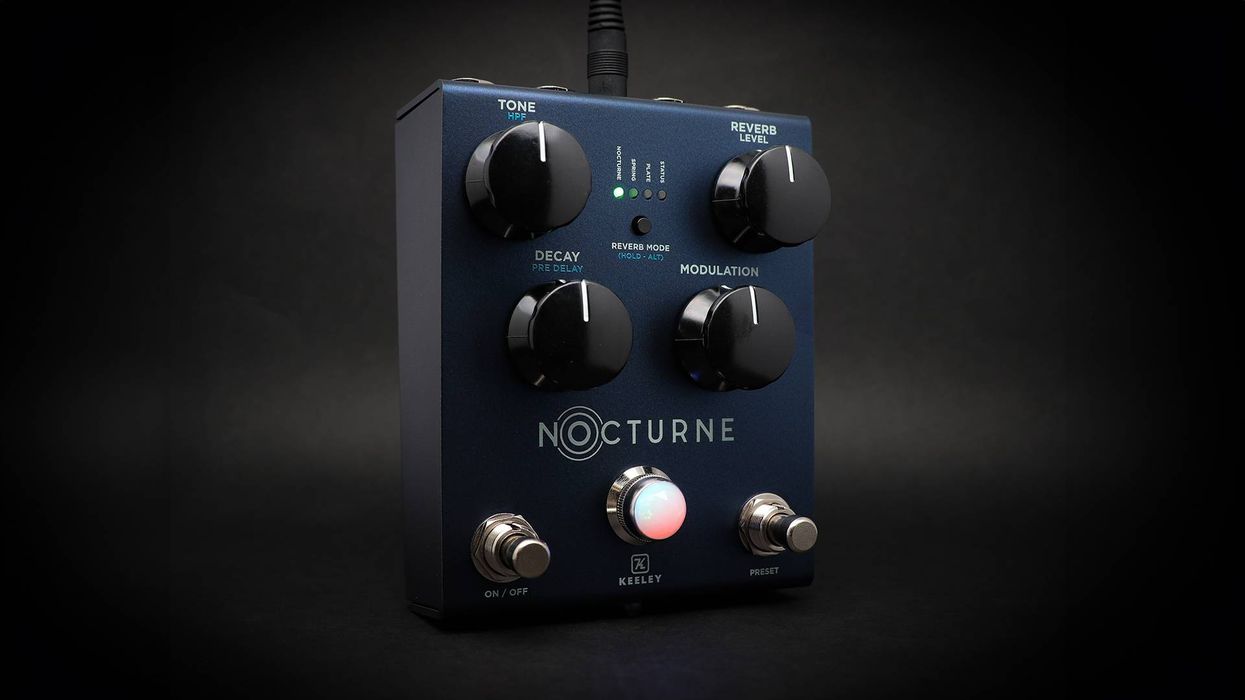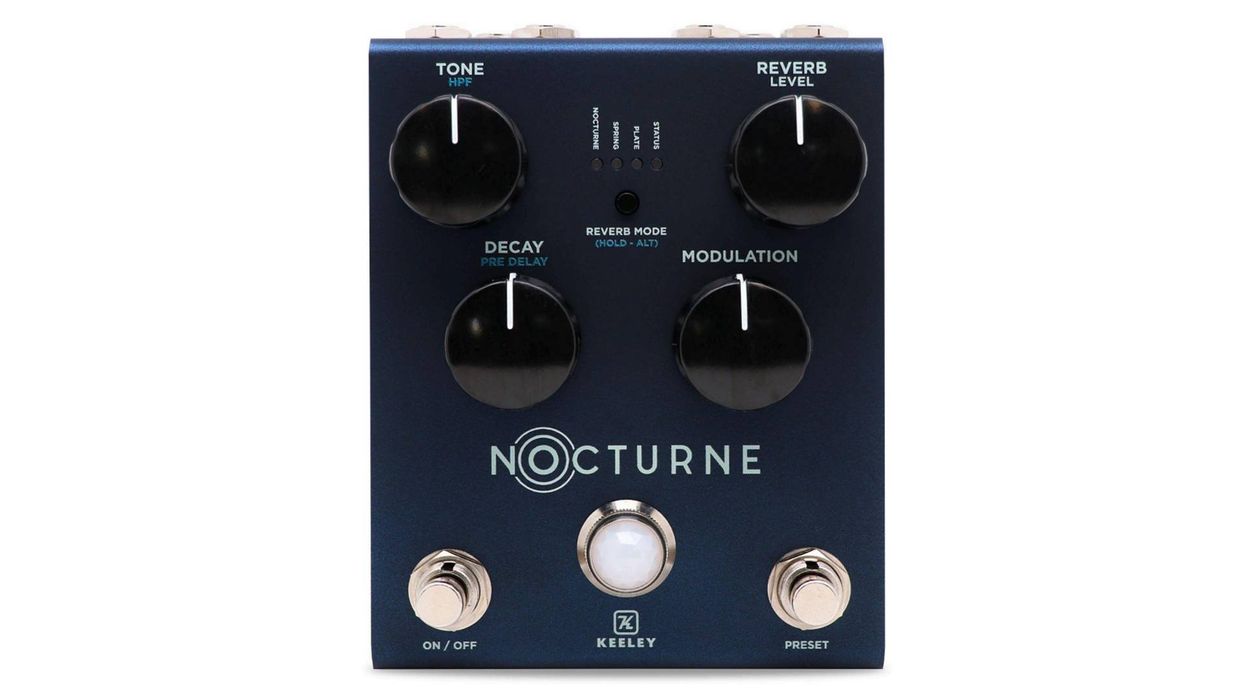Nashville, TN (September 7, 2011) – Federal agents raided Gibson facilities in Nashville and Memphis on August 24 investigating alleged illegal wood imports. These raids came nearly two years after agents originally raided the facilities in 2009. On August 25, Gibson CEO Henry Juszkiewicz addressed the press on the steps of the company’s Gibson USA facility in Nashville and vehemently denied any wrongdoing.
Both federal investigations concern the Lacey Act, a law that was passed in 1900 to regulate the trade of endangered species. In 2008, an amendment expanded the law’s scope to cover plants—including some wood species used to make guitars. Many luthiers and guitarists take exception to the amendment, suggesting that it is poorly written and would even prohibit most guitarists from traveling overseas with their existing guitars if taken seriously.
Gibson’s cases revolve around ebony from the Republic of Madagascar seized in the 2009 raid, and Indian rosewood seized yesterday. Following the most recent raid, a representative for the Environmental Investigation Agency told NPR that an investigation showed that Gibson knowingly imported illegal wood.
"Gibson clearly understood the risks involved," EIA director of forest programs Andrea Johnson told NPR. "Was on the ground in Madagascar getting a tour to understand whether they could possibly source illegally from that country. And made a decision in the end that they were going to source, despite knowing that there was a ban on exports of ebony and rosewood."
Juszkiewicz, however, says that Gibson has sworn statements and paperwork from the Republic of Madagascar on file in federal court declaring that the ebony seized in 2009 was legally obtained. Further, The Wall Street Journal reports that Juszkiewicz attributed the most recent alleged-illegal wood to a labeling mistake, likely made by a broker, and the Gibson CEO says that Indian authorities approved the sale.
“The Justice Department’s position is that any guitar that we ship out of this facility is potentially [an] obstruction of justice and to be followed with criminal charges because we bought product from India,” Juszkiewicz told reporters in a press conference after the recent raid. However, Gibson employees returned to work immediately—a move he said he is personally responsible for.
“I’ve instructed our staff to continue building the product,” he said in response to a reporter’s question about Gibson’s compliance with the government following the raids. “I’ve taken personal responsibility for that action,” he said.
“We feel totally abused,” he said. “We believe the arrogance of federal power is impacting me personally, our company personally, and the employees in Tennessee—and it’s just plain wrong."
Juszkiewicz has referenced Gibson’s commitment to employing US workers many times, but never as boldly as in a radio interview with KMJ News Talk Radio’s Chris Daniel, where the Gibson CEO alleged that the US government said that Gibson’s problems would go away if they used Madagascar labor instead of US labor.
Representatives of the US Attorney’s office declined to comment for our story. Currently, a government lawsuit against the company has put the items seized in the 2009 raid in legal limbo while raising the question of whether serious charges could be brought against Gibson, Juszkiewicz, and others in the company. The government claims the materials are contraband, but Gibson disagrees and wants them back. It is unclear whether the civil suit will continue or the government will pursue criminal charges.
Both federal investigations concern the Lacey Act, a law that was passed in 1900 to regulate the trade of endangered species. In 2008, an amendment expanded the law’s scope to cover plants—including some wood species used to make guitars. Many luthiers and guitarists take exception to the amendment, suggesting that it is poorly written and would even prohibit most guitarists from traveling overseas with their existing guitars if taken seriously.
Gibson’s cases revolve around ebony from the Republic of Madagascar seized in the 2009 raid, and Indian rosewood seized yesterday. Following the most recent raid, a representative for the Environmental Investigation Agency told NPR that an investigation showed that Gibson knowingly imported illegal wood.
"Gibson clearly understood the risks involved," EIA director of forest programs Andrea Johnson told NPR. "Was on the ground in Madagascar getting a tour to understand whether they could possibly source illegally from that country. And made a decision in the end that they were going to source, despite knowing that there was a ban on exports of ebony and rosewood."
Juszkiewicz, however, says that Gibson has sworn statements and paperwork from the Republic of Madagascar on file in federal court declaring that the ebony seized in 2009 was legally obtained. Further, The Wall Street Journal reports that Juszkiewicz attributed the most recent alleged-illegal wood to a labeling mistake, likely made by a broker, and the Gibson CEO says that Indian authorities approved the sale.
“The Justice Department’s position is that any guitar that we ship out of this facility is potentially [an] obstruction of justice and to be followed with criminal charges because we bought product from India,” Juszkiewicz told reporters in a press conference after the recent raid. However, Gibson employees returned to work immediately—a move he said he is personally responsible for.
“I’ve instructed our staff to continue building the product,” he said in response to a reporter’s question about Gibson’s compliance with the government following the raids. “I’ve taken personal responsibility for that action,” he said.
“We feel totally abused,” he said. “We believe the arrogance of federal power is impacting me personally, our company personally, and the employees in Tennessee—and it’s just plain wrong."
Juszkiewicz has referenced Gibson’s commitment to employing US workers many times, but never as boldly as in a radio interview with KMJ News Talk Radio’s Chris Daniel, where the Gibson CEO alleged that the US government said that Gibson’s problems would go away if they used Madagascar labor instead of US labor.
Representatives of the US Attorney’s office declined to comment for our story. Currently, a government lawsuit against the company has put the items seized in the 2009 raid in legal limbo while raising the question of whether serious charges could be brought against Gibson, Juszkiewicz, and others in the company. The government claims the materials are contraband, but Gibson disagrees and wants them back. It is unclear whether the civil suit will continue or the government will pursue criminal charges.



















![Rig Rundown: Russian Circles’ Mike Sullivan [2025]](https://www.premierguitar.com/media-library/youtube.jpg?id=62303631&width=1245&height=700&quality=70&coordinates=0%2C0%2C0%2C0)






